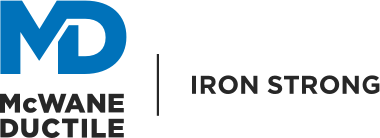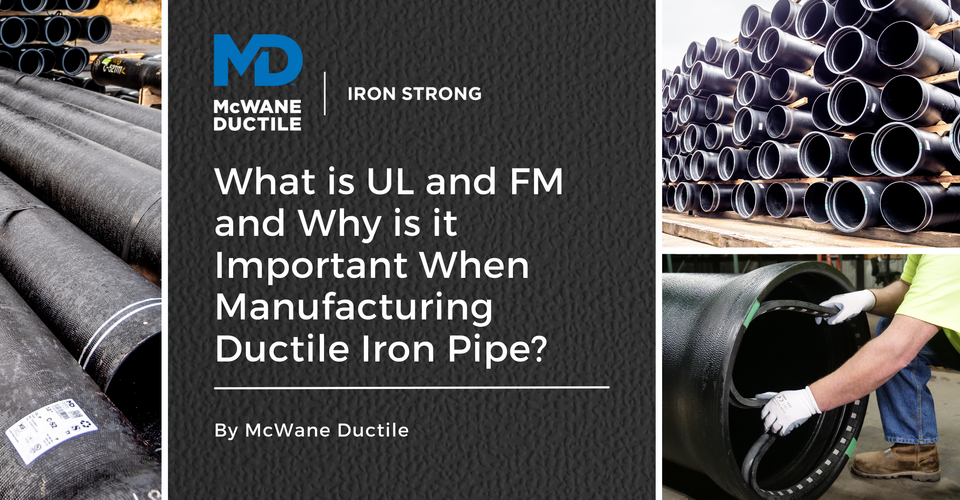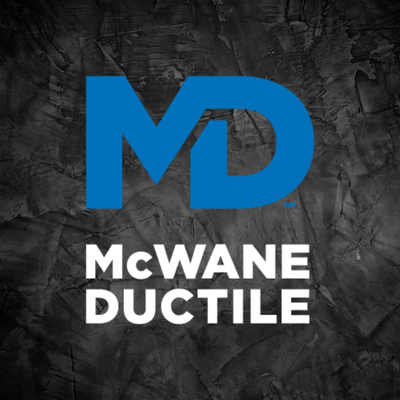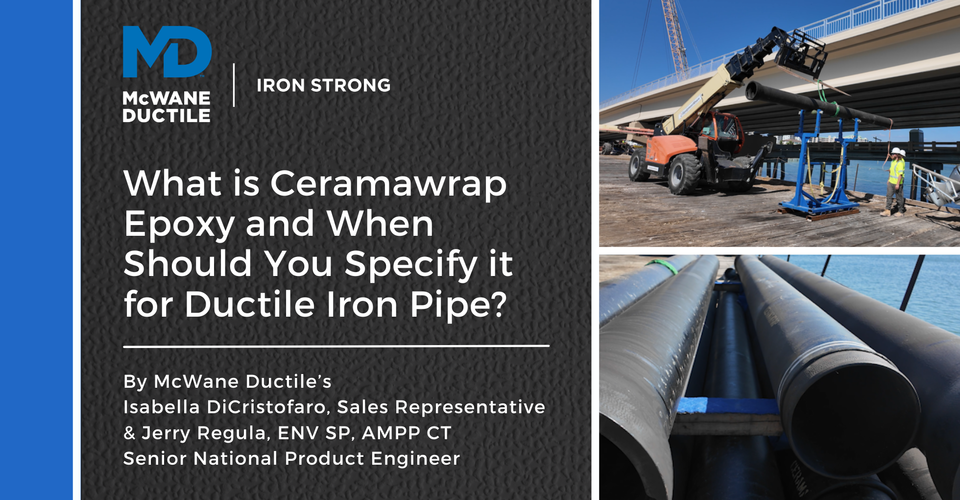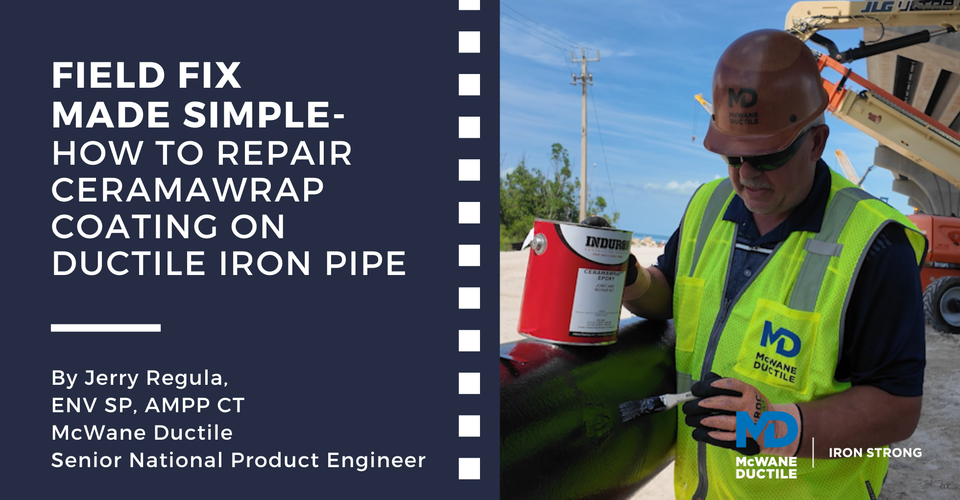Have you ever been in a situation where you needed the opinion of a trusted advisor or friend on an important decision? Perhaps you needed advice to help you navigate the steps required to reach a specific goal. In these situations, it is often advantageous to consult a knowledgeable person or a trusted third party to provide guidance and peace of mind that you have considered all variables and risks.
Preservation of life and property is the goal of engineers designing fire flow systems. The requirement of products bearing the UL (Underwriters Laboratories) and FM (Factory Mutual) insignia in fire protection systems has been an industry standard for nearly a century. This Iron Strong Blog will cover what UL and FM certifications are and why they’re important when manufacturing Ductile iron pipe.
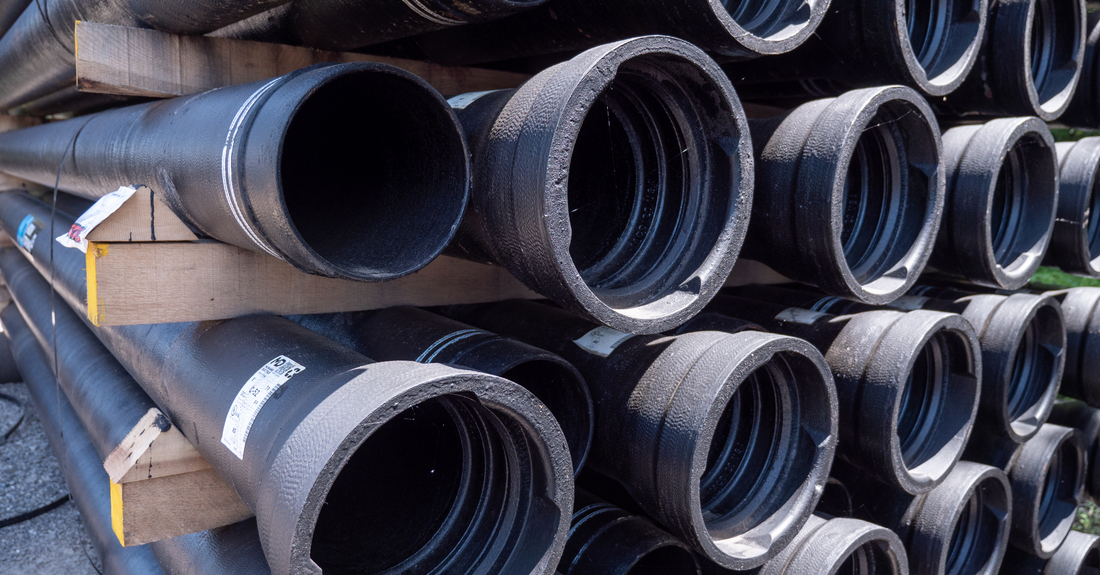
What Do UL and FM Mean?
UL (Underwriters Laboratory)
Founded in 1894, UL began testing and certifying products and devices used for fire protection. UL examined and tested sample products submitted for approval. Approved products were included in a product directory published twice a year by UL. The UL label did not appear on the listed products. Approved manufacturers' factories were subject to informal follow-up inspection by UL staff.
The Iroquois Theatre fire of 1903, which killed over 600 people in Chicago, sparked outrage and a demand for change in fire protection standards. In 1904, UL created its Reexamination Service to bolster the approval process of listed products. Two significant changes ensued:
- Manufacturers were required to sign a contract agreeing that their products were made precisely as the samples submitted to UL for approval.
- Formal factory inspections by UL staff were required regularly to achieve approval.
Products meeting these new requirements could display the UL label. This label allowed consumers to visually identify and purchase a product that was manufactured in accordance with published UL standards.
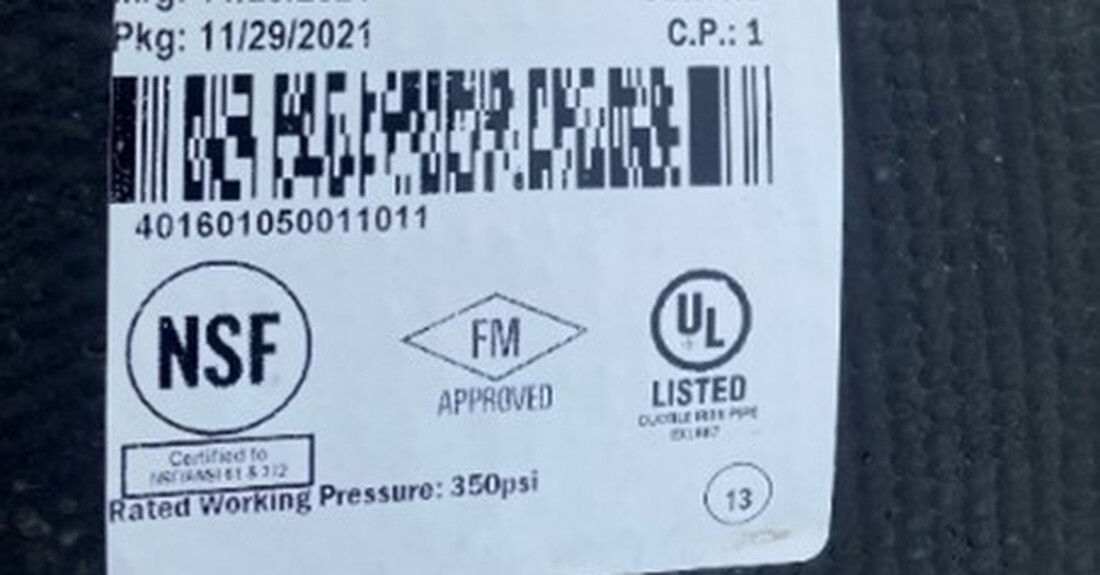
FM (Factory Mutual)
Founded in 1886, FM was the first organization in the U.S. to test fire-protection devices and products.
With the advent of the first automatic fire sprinkler system in the late 1800s, FM began testing these systems and their requirements in 1892.
In 1897, FM published its first approved products guide that included over 60,000 approved products. Today, over 50,000 products manufactured by over 2,500 companies display FM approval for the following products:
- Fire protection equipment
- Electrical equipment
- Building materials
- Roofing assemblies
- Hazardous location equipment
- Fire detection and signaling materials
- Wall assemblies
- Smoke detection materials
Listing/Approval Requirements
UL Listing Requirements:
- The manufactured pipe is compared to manufacturing drawings to ensure the quality and consistency of manufacturing processes.
- The manufactured pipe must meet the dimensional and performance requirements outlined in AWWA C150 & C151.
- Pipe is pressure-tested in both straight and deflected positions at two times the rated working pressure for a minimum of five minutes.
- UL representatives must be present to witness all performance tests.
Pipe gaskets are also subject to UL requirements and are tested for high and low-temperature performance for up to 45 days.
Once these requirements are met, specific UL listing numbers are assigned for the facility where the pipe is manufactured. The EX 1887 UL approval listed above is the designator for McWane Ductile's Provo, Utah, facility. EX 998 is the designator for McWane Ductile's Coshocton, Ohio, facility, and EX 2146 is the designator for McWane Ductile’s Phillipsburg, New Jersey, facility
“The primary benefit of UL certification is that it proves that a manufacturer has achieved safe standard competency to consumers. Earning the UL label demonstrates to all parties that an operation's goods and services rank among the industry's most reliable. The UL rigorously tests products to ensure they meet or exceed state and federal regulations. These often include both safety and environmental regulations. In terms of certification, the UL offers three unique designations.” – International Enviro Guard – January 2020.
FM Approval Requirements:
- Manufactured pipe is compared to manufacturing drawings to ensure the quality and consistency of manufacturing processes.
- The manufactured pipe must meet the dimensional and performance requirements outlined in AWWA C150 & C151.
- An initial audit is conducted to determine the manufacturer’s ability to consistently produce the product that was examined and tested as part of the approval process.
- Additionally, inspections are made of work in progress, production testing, final quality control, marking, equipment calibration, shipping procedures, and drawing control.
- Pipe joints are tested for leakage at two times the rated working pressure for 5 minutes.
- The pipe is hydrostatically tested for 5 minutes at four times rated working pressure.
Pipe gaskets are tested to the requirements of AWWA C111/A21.11. Gaskets are also tested to ensure performance at high and low temperatures.
“FM Approvals certifies products and services with a unique focus on:
- Objectively testing property loss prevention products and services and certifying those that meet rigorous loss prevention standards.
- Encouraging the development and use of FM-approved products and services that improve and advance property loss prevention practices.”
Both UL and FM employ standards for ongoing product approval after initial approvals and listings are achieved, ensuring manufacturers comply with current published standards.
What Can McWane Provide?
Within the three foundries operated by McWane Ductile, we offer a variety of UL-listed and FM-approved pipe, gaskets, and restrained joint products. However, FM-approved pipe should be requested at the time of order entry. UL-listed Mechanical Joint pipe is manufactured in 3”-24” sizes.
We asked our National Product Engineer, Jerry Regula, to clarify our offerings for FM-approved pipe available through our Utah foundry. His reply was, “The rated pressure varies from the standard pressure rating; for example, 12-inch Tyton Class 50 has a standard pressure rating of 350 psi, and that same Tyton pipe is rated for 175 or 200 psi. All pipes are hydrostatically tested at 500 psi during the manufacturing process, regardless of the rating.”
UL Listing for Tyton® and TR Flex® Pipe:
JOINT TYPES |
DIAMETER IN INCHES |
PRESSURE CLASS |
THICKNESS CLASS |
| Tyton Joint Pipe Push-On Joint | 3 – 12 | 350 | 50 – 56 (1) |
| Tyton Joint Pipe Push-On Joint | 14 – 20 | 250, 300, 350 | 50 – 56 |
| Tyton Joint Pipe Push-On Joint | 24 | 200, 250, 300, 350 | 50 – 56 |
| Tyton Joint Pipe Push-On Joint | 30, 36 | 150, 200, 250, 300, 350 | 50 – 56 |
| Tyton Joint (Sure Stop Gasket) Restrained Push-On Joint | 3 – 24 | 350 | 50 – 56 (1) |
| Mechanical Joint | 3 – 12 | 350 | 50 – 56 (1) |
| Mechanical Joint | 14 – 20 | 250, 300, 350 | 50 – 56 |
| Mechanical Joint | 24, 30, 36 | 200, 250, 300, 350 | 50 – 56 |
| Flanged Joint | 3 – 24 | — | 53 – 56 |
| TR Flex | 4 | 350 | 51 – 56 |
| TR Flex | 6, 8, 10,12 | 350 | 50 – 56 |
| TR Flex | 14, 16, 18 and 20 | 250, 300, 350 | 50 – 56 |
| TR Flex | 24 | 200, 250, 300, 350 | 50 – 56 |
FM Approval for Tyton® Pipe:
JOINT TYPE |
PIPE SIZE |
RATED WORKING PRESSURE (psi) kPa |
| Push-On Joint Pipe Class 50 | 6,8, 10, 12, 14, 16, 18, 20, 24 | 175 (1205) |
Sure Stop 350® gaskets are also UL listed and FM-approved for sizes 4"-24."
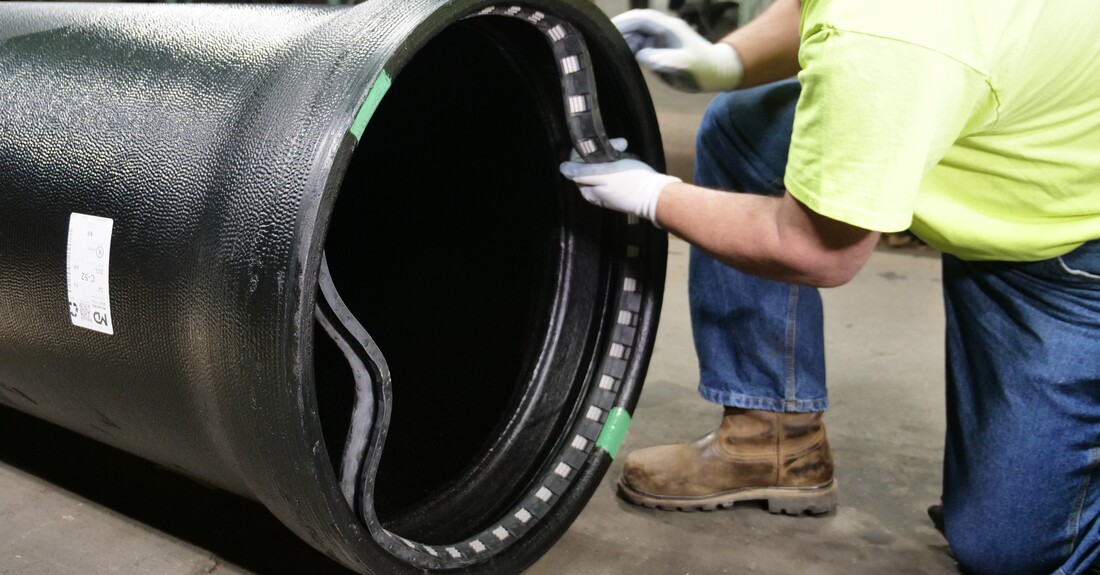
Conclusion
A great deal of thought has gone into the development of these Listings/Approvals. As you can see, obtaining UL and FM certifications is more complex. A great deal of professional etiquette must also be adhered to when obtaining/maintaining approvals. McWane Ductile manufactures Ductile iron pipe with third-party backings and listings provided by UL and FM, assuring our products meet critical requirements established for fire flow systems. McWane Ductile strives to be a professional manufacturer of water products across the industry.
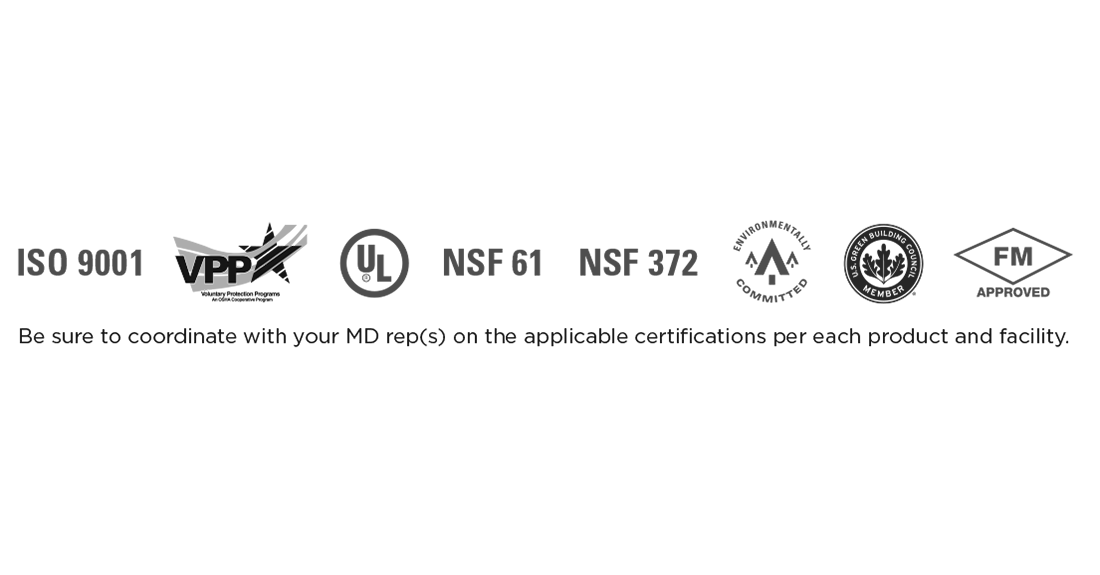
Need Assistance with Your Waterworks Project?
If you have any questions regarding your water or wastewater infrastructure project, be sure to reach out to your local McWane Ductile representative. We have team members who've managed small and large water utility systems, served in engineering consulting firms, and bring decades of experience in solving field issues involving pipeline construction and operation. From design to submittal, to installation, we strive to provide education and assistance to water professionals throughout the water and wastewater industry.
